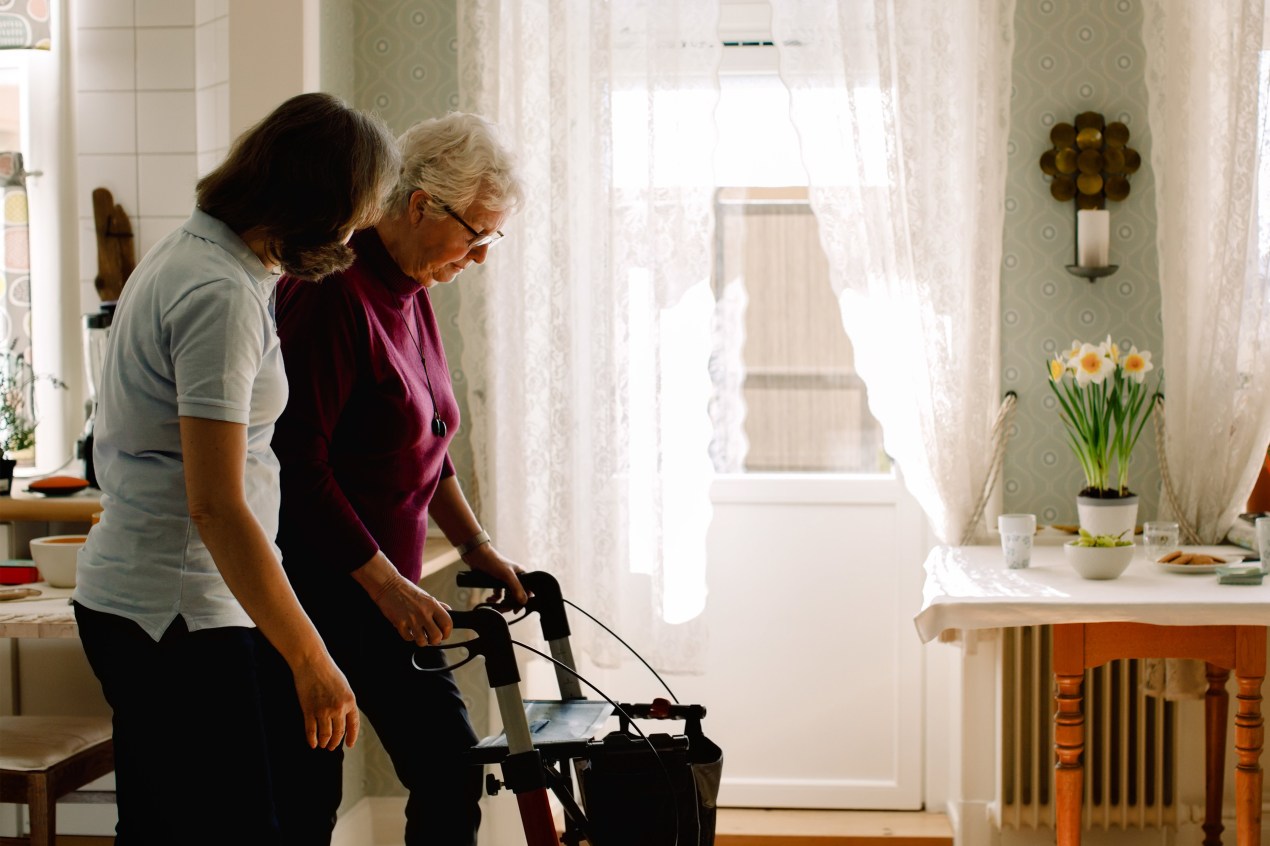Memory Care Facilities Charlotte: Developing a Secure and Nurturing Community
Memory Care Facilities Charlotte: Developing a Secure and Nurturing Community
Blog Article
How to Give Meaningful and Individualized Mental deterioration Care
The arrangement of personalized and significant mental deterioration treatment calls for a nuanced understanding of each person's distinct history and preferences. Treatment methods must be tailored to involve the individual in methods that reverberate with their previous experiences, therefore fostering emotional links and enhancing general well-being. Furthermore, establishing trust through thoughtful and constant interactions is important for developing a risk-free and supportive setting. As we explore the complexities of efficient communication and the crucial role of family involvement, it ends up being clear that the trip toward customized care holds both challenges and extensive rewards.
Comprehending Dementia Uniqueness

Treatment providers should evaluate cognitive abilities, emotions, and behavioral patterns to create personalized care strategies. This might consist of adapting communication styles, utilizing acquainted routines, and utilizing meaningful activities that resonate with the individual's previous experiences. For example, involving a person with an interest for songs via musical tasks might stimulate favorable memories and improve emotional health.
Furthermore, recognizing uniqueness fosters a thoughtful approach that appreciates the dignity and autonomy of those dealing with mental deterioration. It motivates caretakers to listen actively, observe behavior signs, and stay adaptable in their caregiving methods (memory care charlotte). By prioritizing originality, caregivers can not only improve the lifestyle for those with mental deterioration but also develop a more extensive understanding of their unique viewpoints, inevitably leading to much more understanding and efficient treatment
Building Count On and Rapport
Developing trust fund and rapport is fundamental in dementia treatment, as it produces a safe and supportive setting for people impacted by the condition. Structure these links needs constant, caring communications that prioritize the needs and sensations of the person. Caregivers have to come close to interactions with empathy, recognizing the one-of-a-kind difficulties faced by those with mental deterioration, consisting of amnesia, complication, and emotional distress.
Reliable communication is crucial in this process. Caregivers need to utilize clear, easy language and non-verbal signs to convey understanding and assistance. Active paying attention demonstrates regard and validation, enabling people to reveal themselves without anxiety of judgment. In addition, preserving a calm disposition can help relieve anxiousness, promoting a sense of safety.
Experience with daily tasks and caretakers promotes a sense of stability, allowing individuals to really feel more at convenience. By doing so, caregivers reinforce the person's identification, promoting self-respect and respect, inevitably leading to stronger, extra purposeful connections in the context of mental deterioration care.
Tailoring Tasks and Involvement
Engaging people with dementia via tailored tasks can dramatically enhance their lifestyle and cultivate a deeper connection in between caregivers and those in their care. Personalization is important, as it recognizes the distinct histories, rate of interests, and abilities of each individual. Tasks should be created to boost cognitive features, advertise physical activity, and encourage social interaction, all while staying enjoyable and satisfying.
To customize tasks properly, it is important to analyze the person's preferences and cognitive capabilities. In addition, integrating aspects of regimen can provide comfort and security, permitting individuals to engage with tasks extra confidently.
Caregivers can improve involvement by taking part alongside the people, fostering an interactive and supportive atmosphere. It is also essential to continue to be adaptive and versatile, readjusting activities as required based on the person's power levels and mood. Ultimately, significant interaction with customized activities not just uplifts individuals with dementia but additionally improves the caregiver connection, advertising common satisfaction and understanding.
Efficient Interaction Methods
Reliable interaction is vital in dementia treatment, as it promotes a feeling of connection and understanding in between caretakers and individuals experiencing cognitive decrease. Using reliable interaction strategies can substantially improve the top quality of communications and lower stress for both parties.
To start with, utilizing simple, clear language is crucial. Brief sentences and familiar words aid people comprehend and respond better. Additionally, preserving a calmness and favorable tone can create a reassuring atmosphere, which is important for people that may feel distressed or confused.
Non-verbal communication plays a significant role. Caregivers ought to take note of body language, face expressions, and motions, as these signs can typically share greater than words - memory care facility charlotte. Establishing eye call and using gentle touch can additionally communicate and enhance connections empathy
Energetic listening is another key part. Caregivers need to listen, enabling individuals to reveal themselves completely, also if their speech is fragmented or uncertain. This reveals respect and encourages more open interaction.
Finally, validating sensations and experiences is vital. Recognizing feelings, no matter their basis in truth, can give convenience and reinforce the caregiver-individual relationship, promoting a much more encouraging environment.
Supporting Family Members Participation
Family members participation plays a significant role in the overall treatment and assistance of people with mental deterioration. Engaging family members creates a collective setting that improves the quality of care, fosters emotional connections, and guarantees that the one-of-a-kind demands of the individual are fulfilled. Relative commonly possess indispensable insights right into the individual's background, choices, and habits, which can be important in creating individualized care strategies.

Furthermore, family members can be encouraged to participate in day-to-day treatment tasks, such as engaging in significant discussions or aiding with familiar regimens. This not only helps suffer the person's feeling of identity however also reinforces familial bonds. Ultimately, by promoting a comprehensive strategy that values family contributions, treatment carriers can boost the overall experience for both individuals with mental deterioration and their loved ones.
Final Thought
In conclusion, providing individualized and purposeful dementia treatment demands a detailed understanding of each person's distinct background and preferences. Jointly, these strategies contribute to enhanced top quality of life for people with dementia.
The stipulation of individualized and meaningful dementia treatment calls for a nuanced understanding of each person's one-of-a-kind history and preferences. By doing so, caretakers reinforce the individual's identity, advertising dignity and respect, eventually leading to more powerful, a lot more meaningful partnerships in the context of mental deterioration care.
Involving people with mental deterioration via customized activities can dramatically enhance their quality of life and promote a much deeper connection between caregivers and those in their care.Family involvement visit the site plays a significant duty in the total care and assistance of people with dementia. Ultimately, by cultivating a comprehensive technique that values family contributions, care carriers can improve the overall experience for both people with dementia and official source their enjoyed ones.
Report this page